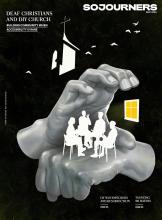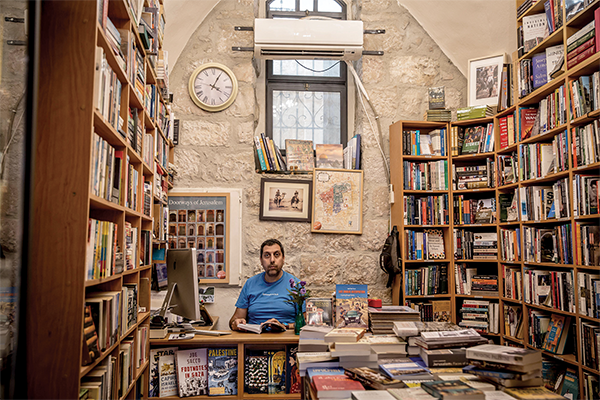IN MAY 1933, Nazi-influenced student groups publicly burned more than 25,000 books by Jewish authors and those deemed liberal or leftist in 34 university towns across Germany. Newspapers supported it as “action against the un-German spirit,” and Joseph Goebbels, Hitler’s minister of propaganda, said to a crowd of 40,000 that “the era of extreme Jewish intellectualism is now at an end. ... The future German man will not just be a man of books, but a man of character.”
This antisemitic act of censorship and intolerance is memorialized at the Yad Vashem Holocaust History Museum in Jerusalem, where a display about book burnings sets the tone for the rest of the museum. Before you enter the display on the rise of Nazism, you must first consider the gravity of book burnings. A prophetic quote from 19th century German poet Heinrich Heine concludes the display: “Where books are burned, human beings are destined to be burned too.”
Across the city, in East Jerusalem, is the Palestinian-run Educational Bookshop. It consists of an English store, which doubles as a coffee shop, workspace, and community hub, and an Arabic store across the road. This family-owned business, which opened in 1984, sells all sorts of titles related to Palestine. There are Palestinian books on cooking, art, and history; there are novels, textbooks, and children’s books. The Educational Bookshop carries titles that are hard to find within Israel, and on a Sunday afternoon in February, this popular bookstore was raided by undercover Israeli police for the first time.
“They came into the shop with a search warrant,” Ahmad Muna, assistant manager of the shop, told me. “They demanded a search that happened over the course of two hours. The officers were aggressive, brutal, were not polite.” According to Muna, the officers didn’t speak Arabic or English; at first they used Google Translate to figure out book titles.
“At some point they had enough of Google Translate,” Muna said, “It was getting too tedious. So, they started to judge the books by their covers, by the design, by the picture on the cover, any book that had the flag of Palestine, any book that had a picture of a prisoner, of a boy being arrested, a picture of the wall, a picture of a Palestinian flag, it was confiscated.”
Police took away about 300 books in trash bags. Muna and his uncle were arrested and detained for two nights. After release, both were put under house arrest for five days and banned from entering their shop for more than two weeks.
Read the Full Article

